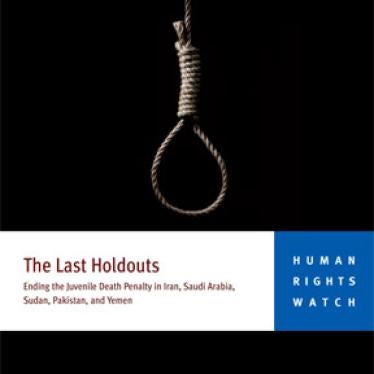(New York) - The Papua New Guinea government should abolish the death penalty instead of putting it back into effect, Human Rights Watch and Amnesty International said in a joint letter to Dr. Allan Marat, justice minister and attorney general. In the letter, dated July 10, the two human rights organizations criticized statements by Papua New Guinea government officials calling for steps that would enable it to carry out executions.
Recent violent crimes including the alleged killings of four children by their mother led to statements by officials that they were considering reinstating executions. Marat told journalists recently that his office was drawing up regulations necessary to conduct executions. Papua New Guinea has not carried out an execution since 1954, despite Parliament's reintroduction of the death penalty for willful murder in 1991.
"Restarting executions would be a huge step backward for Papua New Guinea that would move the country away from the prevailing trend of world opinion and practice," said Zama Coursen-Neff, deputy director of the Children's Rights Division at Human Rights Watch. "Papua New Guinea should strengthen its criminal justice system, but there's no evidence that the death penalty actually deters crimes more than other punishments."
Amnesty International and Human Rights Watch oppose the death penalty in all cases as a violation of fundamental rights - the right to life and the right not to be subjected to cruel, inhuman, and degrading punishment. The organizations called on Papua New Guinea to abolish the death penalty and to ratify the Second Optional Protocol to the International Covenant on Civil and Political Rights. The organizations also called on the government to strengthen its judicial system so that those convicted of crimes face just penalties that comply with international standards.
"The death penalty is a violation of the right to life and Papua New Guinea would damage its credibility by re introducing it," said Amnesty International's Pacific researcher Apolosi Bose. "Instead, Papua New Guinea should uphold the guarantees of the right to life and freedom from cruel, inhumane, and degrading treatment found in its own constitution and international legal commitments."
The death penalty has been legally abolished by 94 countries, and only a small minority of countries - 25 in 2008 - continues to carry out executions.






